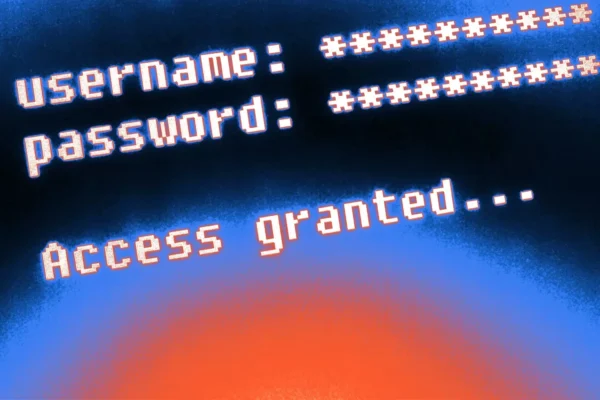
How to Donate Wisely and Avoid Charity Scams
In times of crisis like the COVID-19 pandemic, our first instinct is often to help. Since many of us are unable or unqualified to be on the frontlines when disaster hits, we choose to support those in need with monetary donations. Technology and social media have made it easier than ever to donate to causes and charities near and dear to our hearts. Unfortunately, it has also ushered in a new era of digital scammers that prey on those wanting to lend a helping hand.
Donating money in times of need is a great way to give back, but Amplify Credit Union wants you to do it safely. To get some helpful tips, we spoke with Bruce Smith, Amplify’s Information Security Officer. Here’s what he had to say about donating wisely and avoiding charity scams.
How to Find Legitimate Charities
The first step to avoid charity fraud is to look into the organization that you wish to support.
Never visit charitable sites based upon links in an email or text. Always type them out.”
“You should always take the time to research a charitable organization before you donate, or even visit online,” Smith explains.
This research is especially crucial if you’re donating during an event such as a health crisis or natural disaster. In these times, you’ll want to be overly cautious. Criminals see this as a prime opportunity to take advantage of people wanting to make a difference during horrific situations. You’ll see fake campaigns pop up on social media, and if people aren’t careful, misinformation can spread like wildfire.
How to Search for Reputable Organizations
A quick Google search can be a great starting point for your research. If you already have an organization in mind, search that name plus words like “rating” or “reviews.” If you don’t have a specific charity in mind but know the field you want to donate to, try searching for the cause— like “cancer research”— and phrases such as “best charities” or “highly-rated charities.”
Smith offers several resources that can help you in your research. “The Federal Trade Commission (FTC) has important advice online to ensure your donations go to a good cause,” he says. Several trusted independent charity evaluators also provide ratings for organizations, including:
Before you donate, check out the rating of the charity. Even if it is a legitimate organization, it doesn’t necessarily mean that it uses the money wisely. You may discover that it has a less-than-stellar rating and decide that your money will be better put to use with another nonprofit.
These websites can also be used in conjunction with the IRS’s Tax Exempt Organization Search, which will let you know if you are working with a registered charity and, therefore, if your donation is tax-deductible.
Weeding Out Copycats
Copycats are scammers that use similar names, logos, or web design as real charities to lure people into sending over funds or personal info. Smith provides a few helpful tips for avoiding these types of scams.
“Never visit charitable sites based upon links in an email or text, always type them out manually in your browser,” he says. Copycats will often disguise their links, making you think you’re going to a legitimate web address when in reality, you’ve been directed to a fraudulent place.
You’ll also want to be careful with phone calls. “Never call a charitable organization using a phone number you received in an email or text,” Smith adds. “Always research the organization online and call their main published number.”
Red Flags That a Charity Is a Scam
Certain red flags can warn you of danger. If you are thinking about donating to an unfamiliar charity, be on the lookout for these common scam tactics.
- You receive an unsolicited email, call, or text. Be careful if you’ve been contacted by a charity you have never researched before. Never give your information over the phone or click links in unsolicited emails or social media fundraising.
- You receive a thank you note for previous donations that you never made. Scammers will open their spiel by thanking you for an earlier contribution, making you think it’s safe to give again.
- You are pressured to donate immediately. Honest organizations will be happy to receive funds anytime, especially if you are a new donor.
- You are targeted by a grassroots crowdfunding campaign in the wake of a disaster. Scammers can easily use photos and stories of real victims to prop up fraudulent campaigns.
When you do donate, always check your credit card or bank account statements to make sure you were charged the agreed-upon amount. Should your information get into the wrong hands, keeping track of your expenses is key to identifying instances of fraud.
The Safest Ways to Donate to a Charity
Some people are wary about donating with credit cards online. In reality, credit cards are one of the safest ways to give. “Once you have researched your charity and feel comfortable it is legitimate, donate online via credit card or by check,” Smith says. “If you are asked to send cash, gift cards, bitcoin, or wire funds, it’s likely a scam.”
As for phone donations, Smith preaches caution. “Never give your payment information to callers over the phone,” he explains. “If you are called by someone claiming to represent a charity and seeking donations, take their information, and start your research.” This is because scammers often use tactics over the phone to pressure folks into providing payment and personal information.
When it comes to providing personal information, it is not uncommon for organizations to request contact info, such as an email address. But you should never be asked for information like your Social Security number or other unrelated data. If you’re worried about how your information will be handled, check out the organization’s Donor Privacy Policy. Reputable organizations should have this in place for donors to easily access.
Opting Out of Future Contact
You may be hesitant to give because of the influx of emails and letters that come from the organization and its partners after a donation. If you are worried, Smith suggests simply opting out.
“When providing your contact information online, always look for the opt-out setting or checkmark boxes that will subscribe you to their automated emails,” he adds. “Many times, those are set by default to subscribe you automatically.” If you receive unwanted emails, look for the option to unsubscribe.
Remember: Stay Informed
Scammers prey on the uninformed. To guard yourself against these unscrupulous people, remember to always do your research. A few minutes and a quick Google search is often all it takes to prevent your money from getting into the wrong hands.
Keep Your Money Safe
Use our online banking tools to track your spending and keep your money safe.

